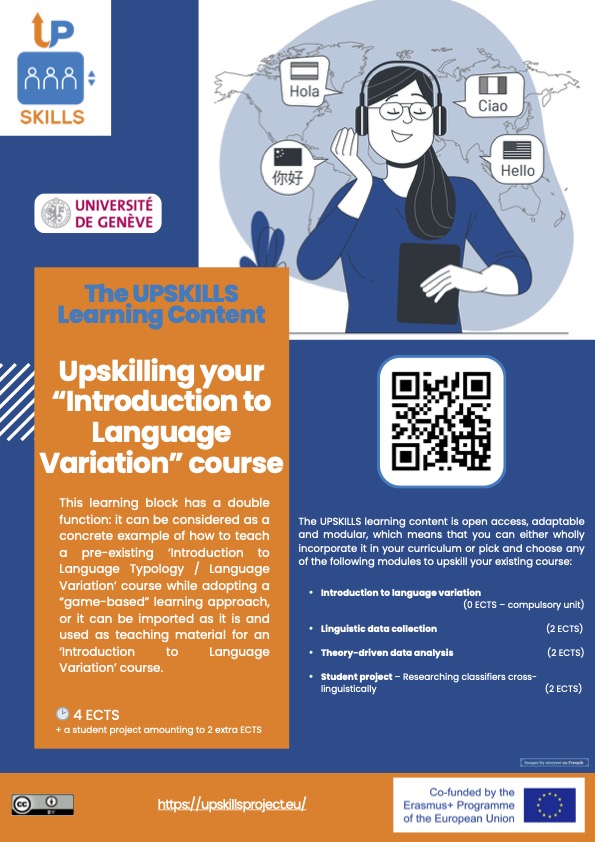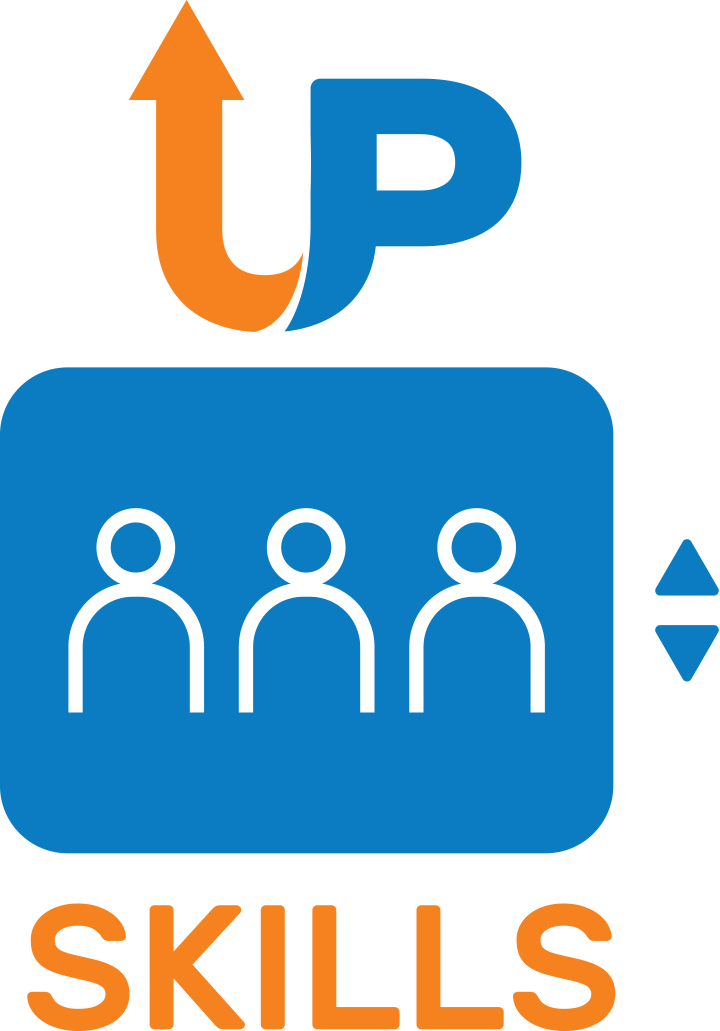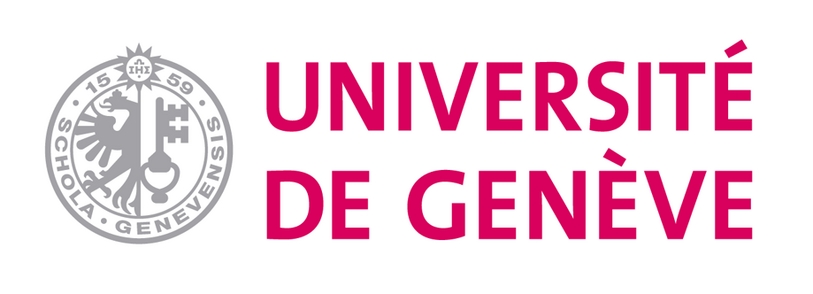The UPSKILLS Learning Content
Upskilling your “Introduction to Language Variation” course
🕑 4 ECTS (+ a student project amounting to 2 extra ECTS)
Description and scope
This learning block has a double function: it can be considered as a concrete example of how to teach a pre-existing ‘Introduction to Language Typology / Language Variation‘ course while adopting a “game-based” learning approach, or it can be imported as it is and be used as teaching material for an introduction to language variation course.
Depending on their preferred approach, the lecturer can:
- look at the way this course has been designed to see how to enrich their own courses by selecting different topics from the proposed block and adopting individual activities, games and/or readings as the need arises.
- combine different topics, or even use the content of the entire block for their teaching.
The philosophy behind the block is that students should take an active approach in learning. We provide definitions of the main concepts, individual activities and readings. Students are called to apply this knowledge by engaging in a game that follows the basic rationale behind Hasbro’s “Guess who?”® game.
The block’s units are conceived in a modular way that allows lecturers and learners to take (or adapt) them either in sequence or as self-standing contents, depending on their needs. With the exception of the first unit, the remaining 3 ones can be used independently from one another.
Block outline
- Introduction to language variation (0 ECTS – compulsory unit)
- Linguistic data collection (2 ECTS)
- Theory-driven data analysis (2 ECTS)
- Student project – Researching classifiers cross-linguistically (2 ECTS)
Learning outcomes
Overall, the materials and activities present in this block will allow students to:
- discuss the concept of language variation;
- explain the basic principles of Generative Grammar;
- collect linguistic data;
- organize and annotate data;
- analyse data using theory;
- compare analyses and theoretical approaches;
- interact minimally with programming;
- prepare a report of their research activities.
Target audience
The primary target audience are lecturers who (want to) teach about language variation using a different, gamified, approach. Students can also use the materials autonomously, but should be aware that this is not a typical self-study course.
This UPSKILLS learning content block is licensed under a Creative Commons Attribution 4.0 International License.
Block designers
Genoveva Puskas
Margherita Pallottino
Marie Berthouzoz



